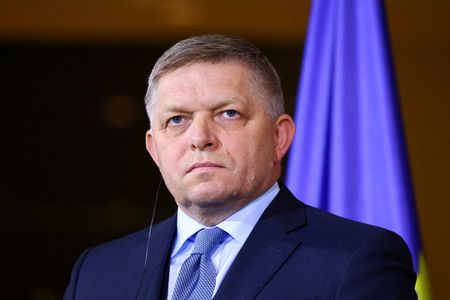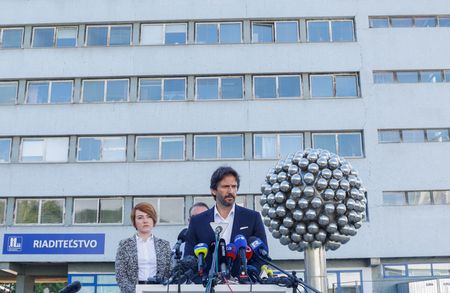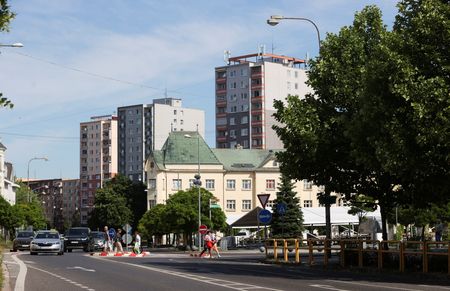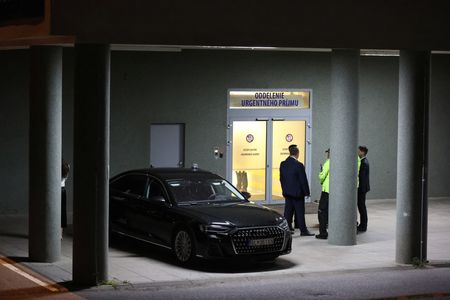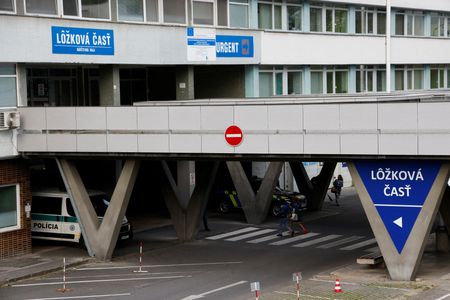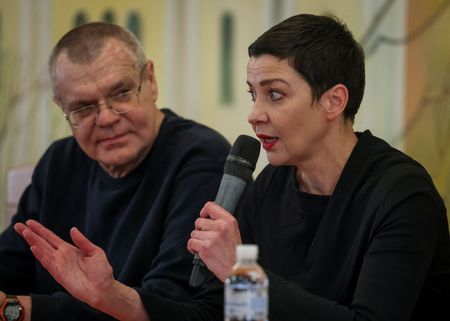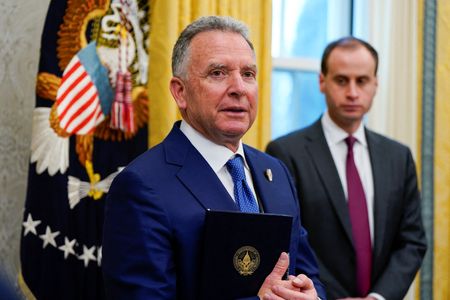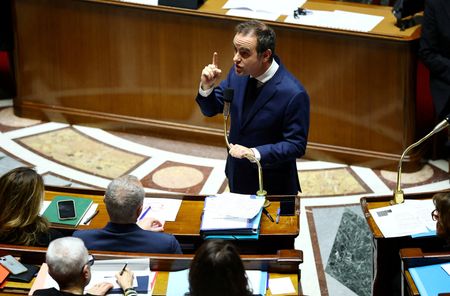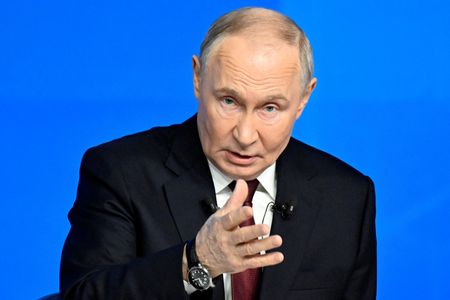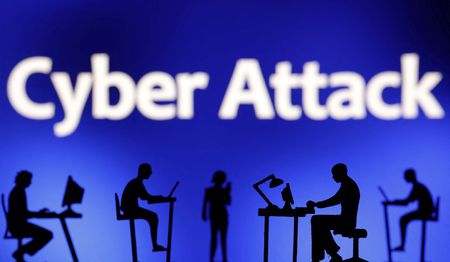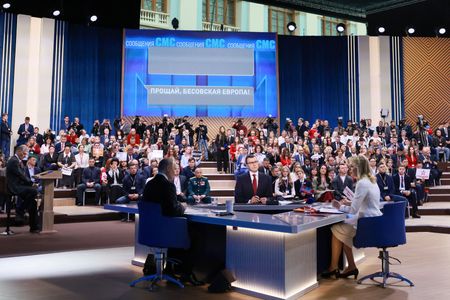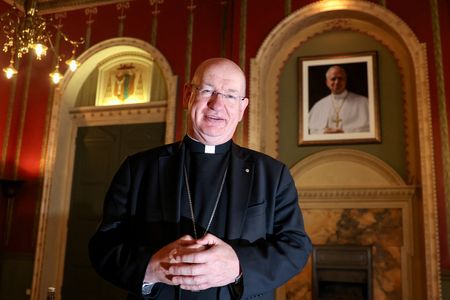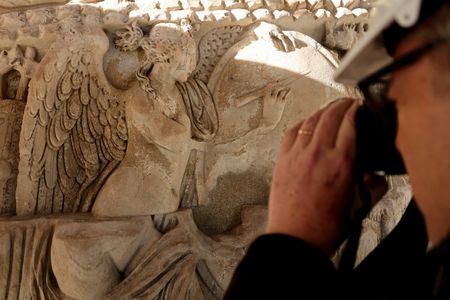By Ayhan Uyanik and Boldizsar Gyori
BANSKA BYSTRICA, Slovakia (Reuters) – Slovakia’s Prime Minister Robert Fico was in a “very serious” but stable condition on Thursday, a hospital official said, after he was shot five times in an assassination attempt that has laid bare deep political divisions in the country.
The shooting was the first major assassination attempt on a European political leader for more than 20 years, and spurred international condemnation, with political analysts and lawmakers saying it was indicative of an increasingly febrile and polarised political climate across the continent.
News website tvnoviny.sk reported on Thursday that police had charged the suspect with attempted murder and that he could face from 25 years to life imprisonment.
Slovakia will convene a state security council meeting and the cabinet will also meet from 11:00 a.m.
(0900 GMT) on Thursday, the government office said.
Miriam Lapunikova, director of the F.D. Roosevelt University Hospital in Banska Bystrica where Fico is admitted, said the prime minister had undergone five hours of surgery with two teams to treat multiple gunshot wounds.
“At this point his condition is stabilised but is truly very serious, he will be in the intensive care unit,” she told reporters.
The suspect shot Fico, 59, while the prime minister was greeting supporters in the street after chairing a government meeting in the central Slovak town of Handlova.
Slovak news media reported that the 71-year-old gunman was a former security guard at a shopping mall, the author of three collections of poetry and a member of the Slovak Society of Writers.
News outlet Aktuality.sk cited the suspect’s son as saying his father was the legal holder of a gun licence.
Deputy Prime Minister Robert Kalinak said doctors had managed to stabilise Fico’s condition overnight, and procedures were underway to secure further improvement.
“Unfortunately the condition continues to be very serious due to the complicated nature of the wounds, but we all want to believe firmly that we will succeed in managing the situation,” he said.
The incident raised questions over Fico’s security arrangements, as the attacker managed to fire five shots at point blank range despite the prime minister being accompanied by several bodyguards.
‘POLITICALLY MOTIVATED’
In an undated video posted on Facebook, the alleged attacker was seen saying: “I do not agree with government policy.”
“Liquidated mass media.
Why is RTVS (public broadcaster) being attacked? Why are people… Mazak, why has he been kicked out of his post,” he continued, in reference to Jan Mazak who had been removed as chairman of a state judicial council.
Reuters verified the person in the video matched images of the man arrested after Fico’s shooting.
Interior Minister Matus Sutaj Estok told a news conference on Wednesday that the attack was “politically motivated”.
Fico and his government coalition allies have criticised sections of the media and the opposition, saying they had inflamed tensions in the central European state.
Slovakia’s biggest opposition party, the liberal, pro-western Progressive Slovakia, called off a planned protest and called for restraint to avoid escalating tensions.
The country of 5.4 million has seen polarised political debate in recent years, including a hard-fought presidential election last month that helped tighten Fico’s grip on power after his ally Peter Pellegrini won.
Since returning for the fourth time as prime minister last October, Fico has shifted policy quickly in what opposition critics said was a power grab threatening the rule of law.
His government has scaled back support for Ukraine while opening dialogue with Russia, sought to weaken punishments for corruption and dismantled a special prosecutor’s office dealing with high corruption, and proposing to revamp the RTVS public broadcaster despite calls to protect media freedom.
Fico has long been critical of Slovakia’s mainstream media, refusing to speak to some outlets.
Members of his party blasted media and opposition actions in recent months.
In Germany, which has recently seen a spate of attacks on politicians, Chancellor Olaf Scholz expressed shock on Wednesday, saying that violence had no place in European politics.
(Reporting by Jason Hovet, Jan Lopatka, Radovan Stoklasa, Boldizsar Gyori; Writing by Alan Charlish; Editing by Raju Gopalakrishnan and Gareth Jones)


